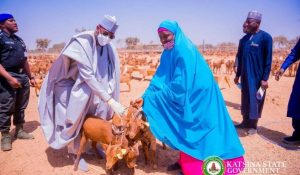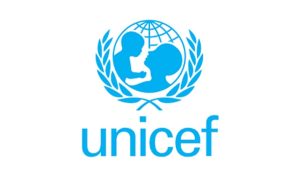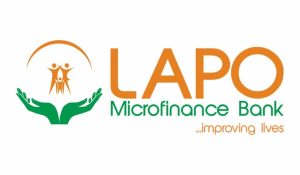
From Empowering Youth to Mobilizing Finance, Bonn Climate Conference 2023 Sets the Stage for COP28
The Bonn Climate Change Conference, held at the midpoint between COP27 and COP28, showcased non-state actor leadership across a number of important climate solutions, but also concluded with a recognition of the substantial work ahead for all. With less than six months remaining until COP28, it is evident that greater efforts are needed to course correct towards a sustainable future for all. Non-state actors (NSAs) are playing a pivotal role, demonstrating strong leadership and action, setting a benchmark for all stakeholders and critically informing the upcoming Global Stocktake (GST).
The UN Climate Change High-Level Champions (HLCs) for COP27 and COP28, Dr. Mahmoud Mohieldin and H.E Razan Al Mubarak underscored the abundance of available solutions. Their programme in Bonn involved launching the Sharm el Sheikh Adaptation Agenda Task Forces, public events on youth, nature, loss and damage, finance, and the GST, workshops with the Marrakech Partnership and other NSA partners to share plans and priorities for the rest of the year, and meetings with groups of States Parties.
Youth leadership & Indigenous voices
In an event called “The Youth Stocktake”, Ms. Al Mubarak emphasized the significance of youth participation and leadership. She commended COP28’s Youth Climate Champion, H.E. Shamma Al Mazrui, for her efforts in amplifying youth voices and priorities. The Climate Champions will soon announce a fresh cohort of paid, part-time Youth Fellows for the third consecutive year, supporting the HLCs to drive real-world momentum in UN Climate Change negotiations. Ms. Al Mubarak highlighted the importance of true inclusivity, highlighting the need to engage a diverse range of stakeholders.
With this in mind, Ms. Al Mubarak conducted a listening session with the Indigenous Peoples constituency, continuing conversations initiated at the United Nations Permanent Forum on Indigenous Issues (UNPFII) in March. The session focused on designing a meaningful COP28 program that respects Indigenous Peoples’ cultures and customs, ensuring their voices and expertise significantly influence climate discussions. Indigenous Peoples from various regions shared their firsthand experiences in environmental conservation and biodiversity protection. Ms. Al Mubarak affirmed her commitment to championing this group and mobilizing locally-led and beneficial technological and financial solutions.
Nature & Finance
During critical discussions on nature and finance, the HLCs emphasized nature’s crucial role in achieving the 2030 Breakthroughs and the Sharm-el Sheikh Adaptation Agenda. However, they highlighted the need for increased local finance flows, with Dr. Mohieldin describing the current funding situation as “insufficient, inefficient, and unfair.” Ms. Al Mubarak pointed out the limited allocation of public climate finance (8%) and private finance (17%) to nature solutions.
Despite these financial challenges, several initiatives were recognized for their progress in advancing a nature-positive economy. Examples such as the Great Green Wall, Compendium of Climate Action Projects, AFR100, Mangrove Breakthrough, and Finance Sector Deforestation Action Initiative, were held up as models of collaboration between NSAs and governments to accelerate progress.
In charting the way forward for finance, it was agreed that developing countries should not bear additional debt in pursuit of a just transition. Ahead of the upcoming New Global Financing Pact summit in Paris, the High-Level Champions will amplify calls from leading NSAs and civil society in finance, advocating for increased mobilization of climate finance through debt reduction, enhanced use of concessional finance, and leveraging public funds and structures to attract private capital at the necessary scale.
During a roundtable on “Delivering on Nature and Climate Outcomes and Ambition”, Ms. Al Mubarak stressed the significance of addressing commodity-driven deforestation. This action not only tackles a major source of emissions, accounting for one-third of global emissions but also addresses a key driver of biodiversity loss, she underlined.
Additionally, Loreley Picourt, Executive Director at Ocean & Climate Platform, Marrakesh Partnership focal point for Ocean & Coastal Zones and one of the Co-Leads of the Sharm Adaptation Agenda Ocean Task Force, shared exciting progress toward defining and accelerating climate action for 2030 Ocean Breakthroughs. These breakthroughs will focus on marine conservation, ocean-based transport, ocean renewable energy, aquatic food, and sustainable coastal tourism, emphasizing collaboration with NSAs at the local level to deliver mitigation, adaptation and finance outcomes.
Adaptation finance
The Conference reignited conversations on mobilizing finance for adaptation and resilience, as well as empowering local communities. The Climate Champions, in collaboration with the Adrienne Arsht-Rockefeller Foundation Resilience Center at the Atlantic Council and the Insurance Development Forum held a meeting with members of the insurance sector and delegates to explore how the expertise and insights from the insurance industry could play critical role in investment on adaptation to reduce risks and vulnerabilities and inform global finance policies to enhance private sector mobilisation for adaptation, resilience, and loss and damage. Recognizing the insurance industry’s role in addressing climate risk, they highlighted its potential to scale up climate adaptation and risk reduction through climate risk analytics capabilities and investment in nature-based solutions for adaptation.
Adaptation and Resilience
To expedite the implementation of the Sharm El Sheikh Adaptation Agenda, the COP27 Presidency, High-Level Champions, and Marrakech Partnership established six Task Forces focused on critical areas: Food Systems, Water, Human Settlements, Oceans, Infrastructure, and Finance. These Task Forces bring together NSAs across all sectors and governments with the aim of accelerating adaptation action towards system transformation.
Dr. Youssef Nassef, the UNFCCC’s Adaptation Director expressed support for these initiatives and reflected on the urgency to elevate adaptation at the same level of mitigation. Dr. Mohieldin emphasized the need to mobilize finance for adaptation, especially in developing economies and low-income countries, given the insufficient allocation of global public and private finance. Ms. Al Mubarak underscored the need to accelerate adaptation to reduce vulnerabilities of people and the opportunity that nature brings to achieve adaptation goals. Youth voices stressed the importance of long-term, locally-led engagement plans in driving meaningful climate action. COP27 and the incoming COP28 Presidencies representatives reflected on the major contribution that this Sharm El Sheikh Adaptation Agenda brings to articulate and accelerate adaptation action with clear near term and tangible delivery.
During the “Actions After Impacts” discussion on losses and damages, the resilience and efforts of local communities in addressing climate change impacts were highlighted. The establishment of a Loss and Damage fund at COP27 was recognized as a crucial step. At the time, Dr. Mohieldin hailed the fund as a “political success and diplomatic victory”, but warned at Bonn the fund “has to be there with us soon.” Ms. Al Mubarak highlighted the necessity of partnerships and the inclusion of local voices. Professor Saleem Huq, Global Ambassador to the Race to Zero and Race to Resilience, highlighted the importance of consulting climate-vulnerable countries like Bangladesh and recognizing their leadership. Mayor of Dhaka North, Mr. Atiqul Islam, shared specific vulnerabilities and solutions, exemplifying the need for action. “Cities are already showing leadership on minimizing the impact of climate change, but recently slum areas are particularly vulnerable because the roofs are made of metal and become very hot. We now have to establish fire hydrants in these areas for the first time,” he said. The HLCs soon aim to showcase examples of solutions that demonstrate how businesses, private finance, cities and regions, and frontline communities are addressing loss and damage.
Marrakesh Partnership and HLC co-hosted workshops
The HLCs hosted workshops with Marrakech Partnership focal points, representing different thematic areas of the 2030 Breakthroughs and Sharm-el Sheikh Adaptation Agenda. These workshops aimed to establish relationships, discuss current and future work, and explore collaboration opportunities. A well-attended workshop on the “Solutions Pathway” provided an inclusive overview of mitigation, adaptation, and loss and damage.
The “2023 Daring Cities Dialogues” event, co-hosted by the City of Bonn and Race to Resilience partner ICLEI, featured high-level participants including Mayor of Bonn, Katja Dorner and and Ms. Shahbano Tirmizi from the COP28 Presidency. Speakers emphasized the importance of multi-level action and forging connections among subnational leaders, national governments, financial institutions, and stakeholders to leverage the potential of local governments as solution drivers.
An LGMA Leaders Dialogue, co-hosted with the UNFCCC Friends of Multilevel Action, served as a final opportunity at Bonn for MLG dialogue. Participants reflected on progress since COP27, including events like Biodiversity COP15, G7, G20, Denver Cities Summit, and the 2nd UNHabitat Assembly (UNHA2). The dialogue aimed to inform the design and implementation of the second phase of the Paris Agreement, focusing on urbanization and multilevel action becoming the norm. Closed-door meetings between Mayors, subnational leaders, and UNFCCC Parties and Partners were held during the session.
The task ahead
The 2023 Bonn Climate Conference is a powerful reminder of the need for transformative action and inclusivity in addressing the global climate crisis. It serves as a springboard for COP28, showcasing how NSAs are not merely participants, but drivers of change, seeing first-hand the impacts of their efforts.
These efforts should help spur a momentum of ambition among all stakeholders, a drive that should be reflected in the GST when we can step back and assess progress made, and progress to be enhanced. This dedication by NSAs is fundamental to joining the gap that still exists between state and non-state action, fortifying the ambition loop that will fast-track our journey to a net zero, nature-positive and resilient world.








